

.jpg)
Recent surveys in Germany and the Netherlands analyse the daily decisions of church members to see if they differ from the rest of society.
.png)
Evangelical Christians actively engage in the Human Rights Council of the United Nations, in Geneva. What is their vision? How do they work?
Cropped(1).jpg)
The parliament prepares a law to abandon the UN Human Rights Committee. The latest decision condemned violations against a Pentecostal pastor.
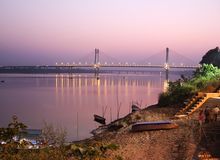
The World Evangelical Alliance sends a report to the United Nations denouncing “how the Indian government has fostered violence and legal discrimination against religious and social minorities”.
.jpg)
Some countries, especially in Africa, depend on Ukrainian grain. Urgent measures need to be taken to avoid the catastrophic consequences of the war in Europe.
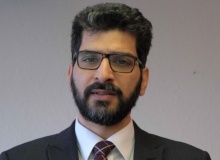
The entity representing 600 million evangelicals calls on Algeria “to end their persecution of evangelicals, rescind the unjust court sentences, and allow the churches forcibly closed to reopen”.
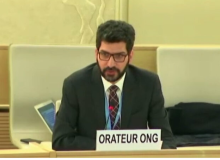
Evangelicals at the UN Human Rights Council also asked the Greek government to look for alternative religious education classes for non-Orthodox students.
.png)
Evangelicals speaking at the UN Human Rights Council also denounced anti-conversion laws in Nepal and India, while praising peacemaking efforts in Lebanon and Colombia.
.jpg)
“By maintaining an effective and equitable conservation of 30% to 50% of Earth’s land, freshwater and ocean areas, society can benefit from nature’s capacity to absorb and store carbon”, says the latest IPCC report.
.jpg)
Hundreds of thousands protest in major European cities against Russia’s invasion. All EU countries agree receiving asylum seekers for at least three years.
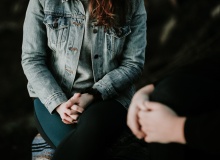
Doubts about the new (proposed) laws which cover talking therapy are being expressed from within LGB (Lesbian, Gay, Bisexual) circles themselves.
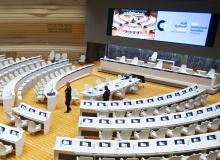
“We stand ready to support a peace and reconciliation process, particularly engaging our regional branch, the Association of Evangelicals in Africa (AEA)”, said Thomas Schirrmacher.
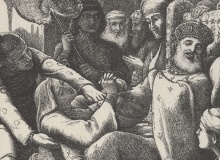
In November, a senior UN official told civil society, “You need to insist, repeat yourself, send letters to the UN, keep reminding us”.
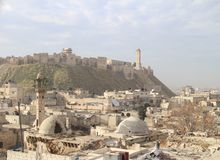
The WEA organised a virtual event to evaluate the impact of unilateral sanctions on churches and aid organizations worldwide and gives recommendations on how to overcome it.
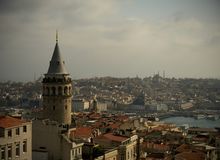
The UN has included the travel bans and deportations of Protestant leaders and the protection of religious minorities in the list of issues to be raised with the Turkish government.
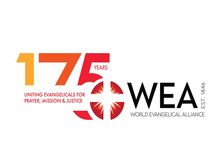
The World Evangelical Alliance commemorates its 175th anniversary, focusing on “the central role of Jesus, the Bible and transforming the world by preaching and practising the gospel”.
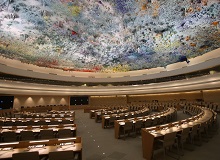
Addressing the Human Rights Council, the UN Expert backs “intersectional gender analysis”. The World Evangelical Alliance says Christians believe “human beings are created male and female” and defends the “freedom to express this belief in the public square”.
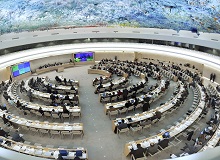
In a strongly worded report, the WEA representatives at the United Nations Human Rights Council say the Hindu nationalist government of India “solidified the environment of hate and intolerance toward religious minorities”.
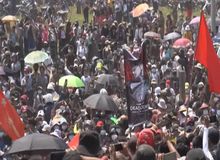
The Religious Liberty Partnership denounces “the gross violation of human rights and religious freedom”. Around 700 people have been killed and over 3,000 arrested since February.
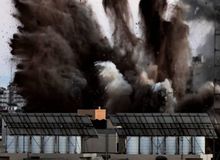
Evangelical churches across the country have gathered "to pray that God will protect and bring peace to both sides", the Evangelical Alliance of Israel says.

The National Council of Evangelicals in France sent a report to the UN Human Rights Committee on the situation of religious freedom and belief in the country.
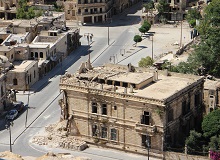
Sanctions on Syria serve to freeze the situation until the conditions for a political solution are available and attainable. But how long should we wait for this? Ten more years? In the meantime, the Syrian population – including Christians – are paying too heavy a price.
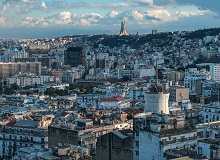
In a UN Human Rights Council session, evangelicals ask Algeria “to allow re-opening of all churches and revise the ordinance on non-Muslim worship”. The government argues they do not comply with Algerian legislation.
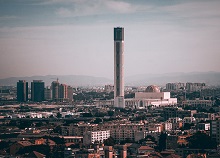
In a letter sent in December, three UN Human Rights Council special rapporteurs asked the government to stop the “intimidation and discriminatory treatment” of Protestants.
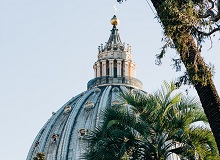
With the recent projects, Pope Francis is making it plain what it means for the Roman Catholic Church to be a “sacrament” in the world in the realms of global politics, education and economy, i.e. uniting the whole of humanity around itself.

Las opiniones vertidas por nuestros colaboradores se realizan a nivel personal, pudiendo coincidir o no con la postura de la dirección de Protestante Digital.